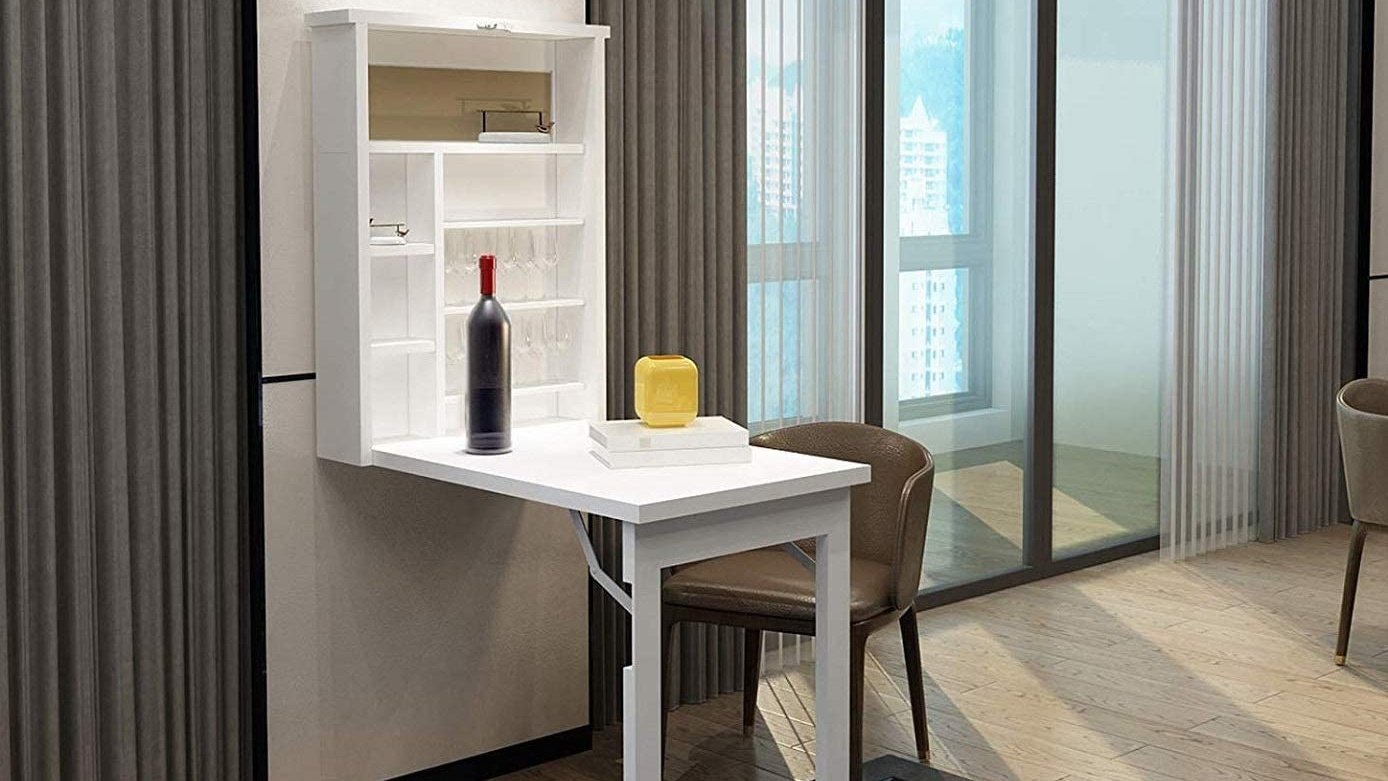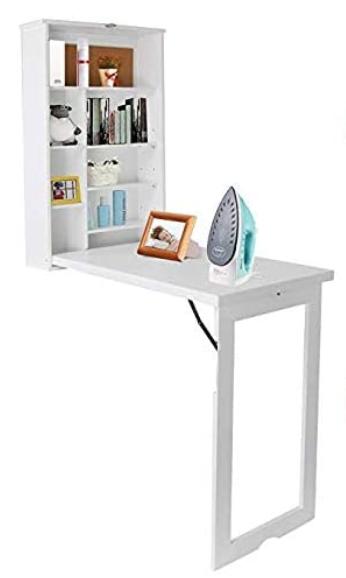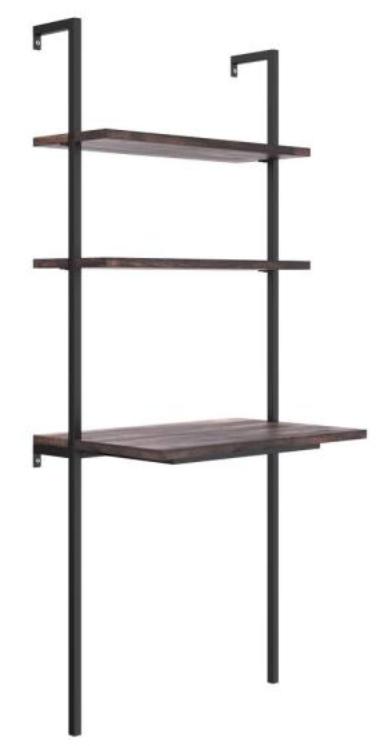How Much Space Do You Save With a Floating Desk?

iMore offers spot-on advice and guidance from our team of experts, with decades of Apple device experience to lean on. Learn more with iMore!
You are now subscribed
Your newsletter sign-up was successful
How Much Space Do You Save With a Floating Desk?
Best answer: It's complicated. A floating desk can save some space by downsizing the amount of deskspace you use. However, the exact amount of space saved depends on the dimensions of a floating desk compared to your current desk. Floating desks are great for compact spaces, but traditional desks are optimal if you have the extra space.Basically floating: Tilemall Fold Out Wall Mounted Convertible Writing Floating Desk ($137 at Amazon)Two-in-one furniture: Nathan James Theo 2-Shelf Industrial Wall Mount Ladder Table ($124 at Amazon)
How much space does it save?
There are many different types of floating desks, so the amount of space it saves depends entirely on the design. Floating desks come in all shapes and sizes. For example, some mimic the appearance and functionality of other types of furniture. One option is a decorative ladder with a desk attached to the base, while another acts as a wall shelf with a collapsable desktop that molds into the shelf when not in use. Multi-use floating desks can save you some space in your room as you can bring it to life when it is needed, and hide it when it's not required.
Since the amount of saved space varies from desk to desk, it is best to evaluate your room before making a decision.
What is a floating desk?
A floating desk is a workspace that, ideally, only takes up a small fraction of the floor space that a traditional desk would use. The concept of a floating desk or a desk that can double as something else has been becoming more and more mainstream.
With housing costs rising, most of us find ourselves living in small apartments with little-to-no space. Planning out your room's layout and strategically using the area you have available is vital when it comes to setting up your home work station.
The Pros and Cons
Having a floating desk can increase the amount of floor space you have available. It can be more affordable than traditional desks, and having one can make your workspace look much cleaner. Most people find that their productivity is increased when their room is more organized, and the layout is clean and open. Floating desks can help boost your productivity while saving you dollars in your wallet.
A downside to floating desks is that the workspaces can be significantly smaller than a traditional desk. These tables usually require bolts to be screwed into your walls to hold them up as well. If you're the type of person who lays all of their papers out and has a million and one post-it notes and to-do lists all over your work station, then a floating desk may not be right for you as space is limited. Also, some individuals are not comfortable with or not able to drill holes into their walls, and as a floating desk needs to be fastened to the wall, this may not be your favorite choice.
If you live in a studio apartment in New York City or a one-bedroom basement in Vancouver, then a floating desk may be a good choice for you. On the contrary, if you have a decent-sized home office, or need a larger tabletop surface, then a regular, traditional desk is most likely a better choice for you.
iMore offers spot-on advice and guidance from our team of experts, with decades of Apple device experience to lean on. Learn more with iMore!
Camille Sanghera is a freelance writer who loves using the power of words to give individuals and objects a voice. When she is not content writing, you can find her running trails with her dogs or writing novels and e-books. Find her on Instagram at @projectpvo.



